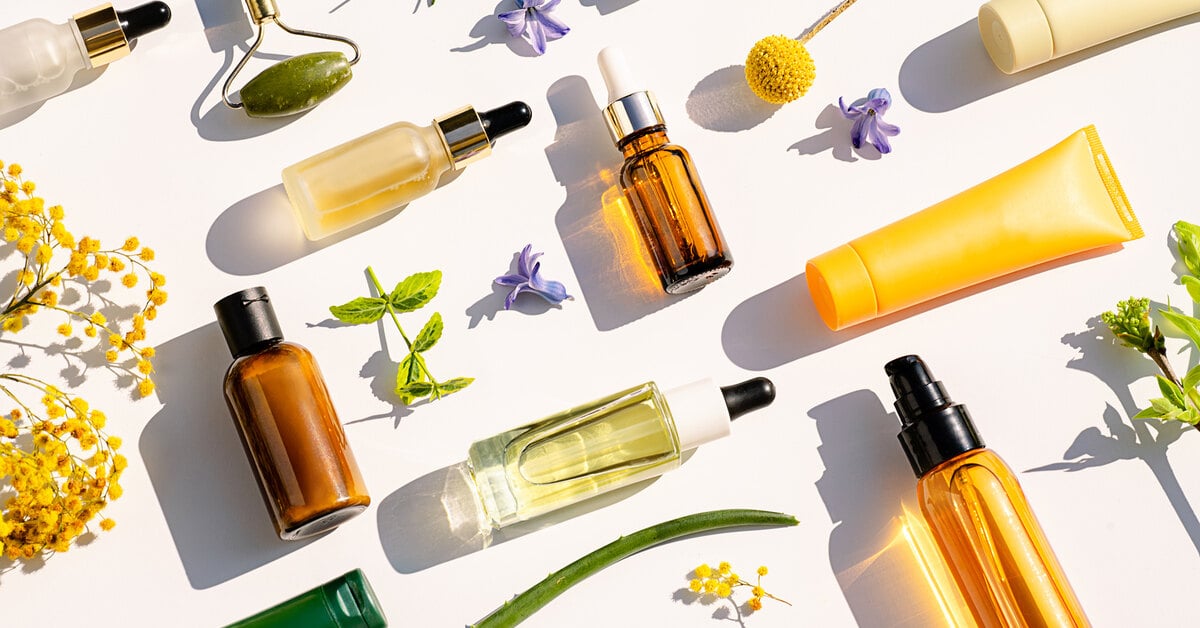
7 Makeup Ingredients Linked to Breast Cancer
For the past 20 years, we’ve witnessed the massive ways in which beauty’s evolved...for the better!
As experts have developed a more sophisticated understanding of formulations and what works best for our skin, we’ve seen a decrease in products loaded with toxins, and a surge of safer, more nourishing options.
Moreover, the market harbors potentially harmful chemicals, some possibly associated with breast cancer.
Whether it’s at Emani or at any other brand, we want you to stay in the know on ingredients so that you can shop with confidence.
So without further ado, we’re sharing 7 possible carcinogens in makeup that may link to breast cancer.
7 Ingredients:
1. Triclosan

Triclosan is typically used in over-the-counter products like antibacterial soaps, toothpastes, and some cosmetics to reduce the risk of bacterial contamination.
According to the FDA, triclosan may have an impact on thyroid function and how it creates hormones when consumed in high amounts, and there are currently ongoing studies observing its potential links to cancer.
2. Coal Tar
Coal tar is a by-product that’s created from the processing of coal, and despite being a known carcinogen, it can still be found in scalp treatments, hair dyes, shampoos, and products for rosacea.
The coal was first identified as a carcinogen in the early 1900s, when young chimney sweeps exposed to coal tar developed scrotal cancer. It may also have links to lung, bladder, kidney and digestive tract cancers, and exposure may also lead to tumors in the body.
3. Parabens
More than any other carcinogen in makeup, parabens may have the biggest reputation. Also, beauty products, including foundations, moisturizers, eye makeup, and lip products, contain parabens.
In addition, manufacturers typically add parabens to products as preservatives to prevent the spread of bacteria. However, the FDA has recognized that many studies have indicated parabens can cause skin and breast cancer and decreased sperm count.
4. Phthalates
Phthalates enhance product texture and flexibility, found in beauty items like nail polish and shampoo, as well as common products like food packaging and raincoats.
National Institutes of Health link certain phthalates to cancer and potential effects on child brain development.
5. 1,4 Dioxane
Manufacturers occasionally encounter 1,4-Dioxane as an unintended contaminant during the manufacturing of some beauty products.
The FDA considers 1,4-Dioxane a potential human carcinogen, advising manufacturers to employ vacuum techniques to prevent contamination.
6. Formaldehyde

Formaldehyde, or formaldehyde-containing chemicals, are sometimes found in hair products, skin products, nail lacquers and shower products.
It can cause allergies like eye and respiratory irritation and is linked to cancer development.
Excessive formaldehyde use can elevate airborne carcinogens, posing a heightened risk of exposure to individuals.
7. Contaminated Talc
Makeup products like face powders, baby powder, eyeshadow, and blush widely use talc, a common mineral.
Talc is generally safe but can become risky when contaminated with asbestos due to their natural proximity.
In 2019, FDA warned against talc-linked asbestos contamination in certain products.






